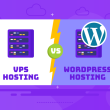Many entrepreneurs who move their stores to the world of eCommerce do not realize how many seemingly trivial elements will affect their success. One of the most marginalized elements is choosing an appropriate e-commerce platform.
Not being aware of the limitations of individual systems, the owners look for low prices or the popularity of a given platform. Unfortunately, when their company grows and develops, they notice, that the selected system does not allow for scalability. And it translates into costly and time-consuming migration.
So how do you approach the problem of choosing an e-commerce platform for your online store? I invite you to read the rest of the article, which will help you to choose the best eCommerce platform for you. You will know the most important advantages and disadvantages of various solutions.
Why is e-commerce growing in popularity?
People love online shopping. Year by year, the number of transactions and money we spend in online commerce is growing. What is the cause? Certainly, greater awareness among consumers about how to safely buy on the Internet. The pandemic also meant that many stores had to adapt to the new realities.
Many companies decided to use agencies to create online stores. Smaller companies chose ready-made solutions, and beginners tried their hand at going to open source platforms. But which is the best solution? Is there an easy answer to that?
Choosing an e-commerce platform for SEO
Most SEO agencies offer a wide range of marketing services for owners of online stores. Promotion in Social Media, Google Ads, or SEO is among the most frequently chosen and most profitable forms of online advertising for e-commerce.
While paid ads have a quick effect and work almost immediately, the SEO process is tedious and long and does not bring the expected results at the very beginning. However, in the long run, it is the most profitable choice.
However, did you know that the success of the SEO process depends on which e-commerce platform you choose? Not every online store platform allows for all modifications boosting the position of your website in the Google search engine. Google’s algorithm takes into account hundreds of factors of different weights, matching the results to specific queries of search engine users.
SEO for eCommerce
SEO is a series of activities that improve the position in search results. We divide it into On-Site SEO and Off-site SEO. The first one includes optimization of the content, website code, and UX actions. The ability to modify the website plays the greatest role in On-Site SEO.
If you want to get to know more about On-Site SEO, read our article about how to improve Google search ranking.
Not all e-commerce platforms have the same capabilities. Some of them have extensive functions, facilitating SEO activities, others require the purchase of additional modules or plugins. But there are also platforms not able to implement some functionalities.
In the article, I will present the biggest problems that individual CMSs cause when implementing changes and sales scalability. I will also discuss the issue of elements that increase sales.

Types of eCommerce platforms
Open Source – “free” eCommerce platforms
Open Source is software with code distributed to the public for free. Developed by the community, it encourages cooperation in its development. It is a perfect solution for people who want the store they open to be their property.
But is it completely free? The assumption is that the owner only pays the hosting costs, and apart from that, they can use a plethora of free templates and extensions. However, most open source systems require the user to have at least minimal knowledge to configure it properly.
Unfortunately, most of the individual solutions, dedicated templates, and specialized integrations that you would like to find in your store will require either the use of paid plugins/modules or the help of an experienced developer who will implement such functionalities for you.
The big advantage of open source systems is security. Thanks to frequent updates created by the community around a given e-commerce platform, they are safe. In addition, most systems allow you to scale your business. You can increase the number of products or ensure proper operation even with a constantly growing number of users.
Open source systems are created by users who attach great importance to the system enabling the edition of a huge number of elements. Conclusion: such systems are very convenient in the SEO process.
Open source platforms are chosen both by people who are just starting an eCommerce business and by medium and large companies. The most popular open source eCommerce platforms are PrestaShop, WooCommerce, and Magento.
SaaS eCommerce platforms
What if we do not have IT knowledge? If we want a fast and relatively cheap solution that will allow us to open an online store? SaaS (Software as a Service) e-commerce platforms come to the rescue.
These are subscription solutions enabling the use of a ready-made program, most often in the cloud. It is a fashionable solution that allows you to open a store quickly. They are based on a ready system with several templates and some functionalities available. You don’t need to be a programming expert to open your first online store quickly, easily, and cheaply.

So let’s talk about costs. These usually include a monthly subscription, thanks to which we have access to software, hosting, the possibility of using a selected domain, and sometimes also developer support for a specified number of hours.
The most popular e-commerce platforms in the SaaS system cost from a dozen to even several hundred dollars a month depending on the selected option. They provide periodic updates of their products, but they also have drawbacks.
The biggest disadvantage of SaaS systems is that you do not own the website code. Companies allow only limited modifications if any. It would be technically problematic and reduce safety.
Another problem is the fact that you have the option of using popular modules and plugin integrations to improve the functionality of your store but integration with a less popular API may turn out to be impossible to implement. Or it may require gigantic financial outlays. Many owners also complain that SaaS platforms don’t work well with a sizeable increase in the number of users on the site. It often is not a good, scalable option.
In terms of SEO, SaaS are relatively well adapted and allow you to change basic elements on the page (meta tags, headers, canonical links, etc.). But in every SaaS solution, you will find something with which sooner or later will have a problem. Before choosing the system, it is worth checking what elements you will be able to edit and contact several users regarding these suspicions.
The most popular SaaS eCommerce platforms include Shopify, Commercetools, and Salesforce Commerce Cloud. These platforms are known for their robust capabilities, including effective salesforce sales cloud implementation, which allows businesses to optimize their sales processes and improve overall efficiency.
Dedicated eCommerce platforms
A solution only a few store owners can afford is a dedicated solution. They can offer much more than the most popular e-commerce platforms. Most often, these are complex platforms integrated with the accounting system, CRM, marketing systems, and sales support tools you choose.
The advantage of dedicated platforms is the perfect adjustment to your individual needs. Any modifications to the source code are almost limitless.
Unfortunately, such a solution that allows you to stand out from the competition also has drawbacks. The most important of them is the price because solutions of this type can easily reach amounts from several dozen to even several hundred thousand dollars.
Another downside is that most of the work will be done by a software house. And we don’t talk only about implementation. Your store will need constant development of the system, for which you will have to pay a lot!
Conclusion
So as you can see, choosing the right eCommerce platform is not easy. There are a lot of things you have to consider. How will you advertise your platform? What are your coding skills? What payment methods do you want to enable? Therefore, there is no such thing as the best eCommerce platform. There is only the eCommerce platform best suited to your needs.
The best eCommerce Solution
Do you like the possibilities of OpenSource platforms, but are you afraid that you won’t be able to use them? That they require knowledge that you don’t have? Ok, we understand it perfectly.
On the other hand, there are SaaS platforms, but you are afraid they will turn out to be insufficient. You worry that your store will not stand out from the competition. We understand that too.
This is why UltaHost has prepared a solution close to the ideal for you. It’s our eCommerce Hosting.

For the price of the SaaS platform, you will receive an Open Source platform. UltaHost is famous for its first-class customer service, so you don’t have to worry about not having coding skills. We will help you install the platform of your choice, regardless of whether you choose Magento Hosting, WooCommerce Hosting, or PrestaShop Hosting.
Our specialists will work together with you to help you create an eCommerce store exactly that you need. You can count on our 24/7 technical support.
Bet on eCommerce Hosting at UltaHost and we assure you that you will win!
If you enjoyed this article, then you’ll love UltaHost hosting platform. Get 24/7 support from our support team. Our powered infrastructure focuses on auto-scaling, performance, and security. Let us show you the difference! Check out our plans!










